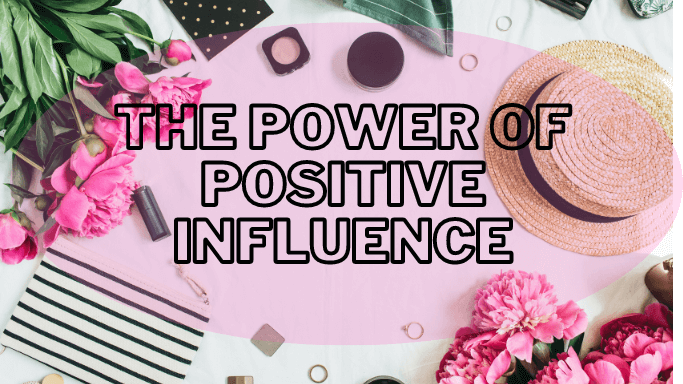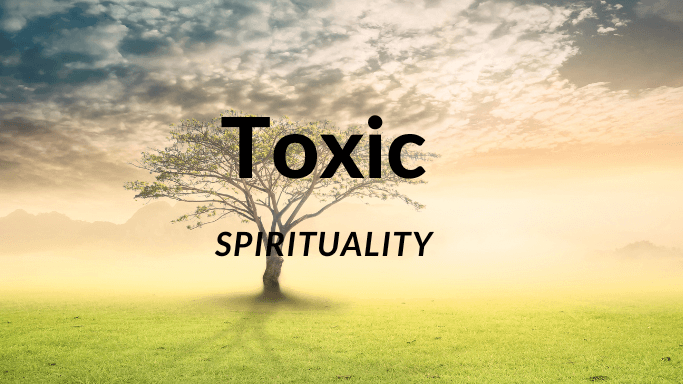The Power of Positive Influence
Positive influence has the remarkable ability to shape our lives, relationships, and even entire communities. Being a positive influence is not only important for personal growth but also for creating a ripple effect of positivity around us. In this article, we will explore the significance of positive influence and provide practical tips on how to become a positive force in both personal and professional settings.

What Are Positive Influences?
Positive influences are actions, behaviors, or attitudes that have a beneficial impact on others. They are characterized by kindness, empathy, support, and encouragement. They uplift, inspire, and empower those around us, fostering personal growth and creating a harmonious environment.
Why is it Important to be a Positive Influence?
Being a positive influence holds tremendous value for several reasons. Firstly, it cultivates stronger relationships, as people are naturally drawn to positivity and kindness. By uplifting others, we can build trust, improve communication, and foster a sense of belonging.
Secondly, positive influence encourages personal and professional growth. When we inspire others to reach their full potential, we create a supportive environment that motivates everyone to strive for excellence. Lastly, it has a ripple effect, spreading happiness, productivity, and well-being to individuals and communities.
Things You Can Do to Become a Positive Influence on Others
Respond, don’t react:
When it comes to being a positive influence, one of the most important things we can do is to respond rather than react. It’s easy to let our emotions take control and react impulsively in various situations, but by taking a moment to pause and respond thoughtfully, we can have a more positive impact.
Reacting often involves knee-jerk responses driven by anger, frustration, or other negative emotions. This can escalate conflicts, damage relationships, and hinder effective communication. On the other hand, responding involves taking a step back, considering the situation, and choosing a more constructive and compassionate approach.
By responding instead of reacting, we allow ourselves to approach challenges with a clear and rational mindset. We can consider different perspectives, seek understanding, and find solutions that benefit everyone involved. This not only promotes positive outcomes but also builds trust and respect among those around us.
To practice responding rather than reacting, it can be helpful to take a deep breath and pause before responding to a triggering situation. This allows us to regain control over our emotions and choose a more measured response. Active listening and seeking to understand the other person’s point of view are also key components of effective responding.
Remember, it’s not about suppressing emotions but rather channeling them in a constructive way that leads to positive outcomes for all involved.
Be honest about your own emotions:
Being honest about our own emotions is an essential aspect of being a positive influence. It involves acknowledging and expressing our feelings genuinely and authentically. By doing so, we create an environment that encourages open communication, empathy, and deeper connections with others.
When we are honest about our emotions, we allow ourselves to be vulnerable and transparent. This vulnerability fosters trust and understanding among those around us, as they can see our authenticity and relate to our experiences. It also encourages others to be open about their own emotions, creating a safe space for meaningful conversations and support.
By expressing our emotions honestly, we demonstrate self-awareness and emotional intelligence. This enables us to navigate challenging situations with greater empathy and understanding. When we can communicate our feelings effectively, we are more likely to find constructive solutions, build stronger relationships, and prevent misunderstandings or conflicts from escalating.
It is important to note that being honest about our emotions does not mean being reactive or overly dramatic. Instead, it involves a balanced approach where we take the time to understand our emotions, reflect on their underlying causes, and communicate them respectfully and constructively.
Practicing honesty with our emotions also allows us to take better care of ourselves. It helps us recognize and address any negative emotions or stressors we may be experiencing. By acknowledging and expressing these emotions, we can seek support, implement self-care strategies, and maintain our overall well-being.
Practice what you preach:
Practicing what you preach is an important principle when it comes to being a positive influence. It involves aligning your actions with your words and leading by example. When you practice what you preach, you inspire trust, credibility, and respect from others.
People are more likely to be influenced by someone who consistently demonstrates the values, behaviors, and principles they advocate. If there is a disconnect between what you say and how you act, it can undermine your influence and the impact you have on others.
By practicing what you preach, you become a role model for those around you. Your actions speak louder than words, and others observe and learn from how you navigate various situations and challenges. This can inspire them to adopt similar positive behaviors and attitudes in their own lives.
Consistency between your words and actions also builds trust. When others see that you follow through on your commitments, that you live up to your values, and that your actions are in line with your beliefs, they develop confidence in your integrity and authenticity.
To practice what you preach, it’s important to regularly reflect on your behavior and ensure that it aligns with your stated beliefs and values. Take the time to evaluate whether your actions are consistent with the messages you convey. If you identify any discrepancies, use them as opportunities for growth and improvement.
Be kind rather than be right:
Choosing kindness over the need to be right is a fundamental aspect of being a positive influence. It involves prioritizing empathy, compassion, and understanding in our interactions with others, even in situations where disagreements arise.
By consciously choosing kindness over the desire to be right, we shift our focus from winning the argument to fostering positive connections and promoting harmony. Here’s why it is important:
Nurturing Relationships: Prioritizing kindness allows us to preserve and strengthen relationships. When we choose to be kind, we create a safe and supportive environment where open dialogue can take place. It encourages mutual respect, active listening, and empathy, which in turn promotes healthier and more meaningful connections.
Encouraging Collaboration: Kindness fosters a collaborative mindset rather than a competitive one. When we prioritize kindness, we create space for diverse perspectives and ideas. This inclusive approach can lead to innovative solutions and a sense of unity as everyone’s contributions are valued.
Building Trust: Kindness plays a crucial role in building trust among individuals and within teams. When we approach disagreements or conflicts with kindness, it demonstrates our willingness to listen, understand, and find common ground. This builds trust, as others feel heard and respected, even if they hold different opinions.
Promoting Personal Growth: Choosing kindness allows for personal growth and learning. It enables us to step outside our comfort zones, challenge our assumptions, and consider alternative viewpoints. Through kindness, we foster an environment that encourages growth, self-reflection, and the expansion of knowledge.
Creating a Positive Ripple Effect: Kindness has a ripple effect on those around us. When we choose kindness over the need to be right, our actions inspire others to do the same. This creates a positive cycle where kindness spreads throughout our personal and professional networks, fostering a more compassionate and harmonious community.
Practicing kindness can be as simple as actively listening to others, acknowledging their perspectives, and responding with empathy and respect. It involves seeking common ground, finding win-win solutions, and focusing on the overall well-being and happiness of everyone involved.
Actively listen to what people are saying:
Actively listening to what people are saying is a vital skill for being a positive influence. It involves giving your full attention to the speaker, demonstrating empathy, and seeking to understand their perspective. Actively listening not only helps you build stronger connections with others but also promotes effective communication and problem-solving.
Choose to be happy:
Choosing to be happy is a powerful mindset that can greatly influence our overall well-being and the way we interact with others. It involves consciously adopting a positive attitude, finding joy in everyday moments, and cultivating happiness from within. Here’s why choosing to be happy is important:
Improved Mental and Emotional Well-being: Choosing to be happy positively impacts our mental and emotional well-being. It allows us to shift our focus away from negativity and cultivate a positive outlook on life. This can reduce stress, anxiety, and depression, and improve our overall resilience in the face of challenges.
Positive Influence on Others: When we choose to be happy, we radiate positivity and become a source of inspiration for others. Our happiness can be contagious, uplifting those around us and fostering a more positive and supportive environment. It encourages others to adopt a similar mindset and find joy in their own lives.
Increased Resilience: Choosing to be happy helps us develop resilience in the face of adversity. It enables us to find silver linings, learn from setbacks, and bounce back from difficult situations with a positive mindset. This resilience allows us to navigate challenges more effectively and maintain a sense of optimism.
Enhanced Relationships: Happiness and positivity are attractive qualities that can strengthen relationships. When we choose to be happy, we bring a sense of warmth, kindness, and joy to our interactions with others. This creates deeper connections, fosters trust, and promotes healthier and more fulfilling relationships.
Improved Physical Health: Happiness has been linked to improved physical health. Choosing to be happy can lower stress levels, boost the immune system, and improve overall well-being. It can also lead to healthier lifestyle choices, such as regular exercise, a balanced diet, and adequate sleep.
Greater Personal Fulfillment: By choosing to be happy, we prioritize our own well-being and personal fulfillment. We embrace gratitude, find joy in the present moment, and pursue activities that bring us happiness and fulfillment. This leads to a more satisfying and meaningful life.
To choose happiness, consider the following practices:
- Cultivate gratitude by focusing on the positive aspects of your life and expressing appreciation for them.
- Practice self-care by engaging in activities that bring you joy and promote well-being.
- Surround yourself with positive influences, whether it be supportive friends, uplifting media, or inspiring books.
- Practice mindfulness and stay present at the moment, savoring the small joys and experiences.
- Let go of negativity and practice forgiveness, both towards yourself and others.
- Develop a positive mindset by reframing challenges as opportunities for growth and learning.
Remember that choosing to be happy is a journey and may require conscious effort and practice. It is about embracing positivity, finding gratitude in the present moment, and nurturing a mindset that allows happiness to flourish.
By choosing to be happy, you not only enhance your well-being but also become a positive influence on those around you. Your happiness can inspire others to find joy in their own lives and create a ripple effect of positivity and happiness in your personal and professional spheres.
Best Tips for Being a Positive Influence in Your Workplace
Find purpose in what you do:
Connect with the deeper meaning and purpose behind your work. This enthusiasm and passion will inspire your colleagues and create a more positive work environment.
Acknowledge that you are not perfect:
Embrace your imperfections and learn from your mistakes. By being vulnerable and open to growth, you inspire others to do the same, fostering a culture of continuous improvement.
Build win-win relationships:
Foster positive relationships with colleagues, superiors, and subordinates. Collaborate, support, and celebrate the successes of others, creating a sense of unity and shared achievements.
Look ahead:
Embrace a forward-thinking mindset and encourage others to focus on solutions rather than dwelling on problems. By being proactive and solution-oriented, you inspire a culture of progress and innovation.
Be open to criticisms:
Welcome feedback and constructive criticism, viewing them as opportunities for growth. Displaying a willingness to learn and improve sets an example for others and fosters
Help others as you ascend:
As you climb the ladder of success, uplift others along the way. Offer guidance, support, and mentorship to colleagues, sharing your knowledge and experience to help them grow and succeed.
Show your appreciation for others:
Recognize and acknowledge the efforts and accomplishments of your coworkers. Celebrate their achievements and express gratitude for their contributions. This fosters a positive and encouraging atmosphere where everyone feels valued and motivated.
Use your influence positively:
Recognize the impact your words and actions have on others. Use your position and influence to promote fairness, inclusivity, and positive change within your workplace. Lead by example and inspire others to follow suit.
Final Thoughts:
Positive influence is a powerful force that has the potential to transform lives, relationships, and entire communities. By embodying kindness, empathy, and positivity, we can create a ripple effect that spreads happiness, productivity, and success to those around us.
Becoming a positive influence requires intentional actions and behaviors. By responding instead of reacting, being honest about our emotions, practicing what we preach, prioritizing kindness over being right, showing appreciation, actively listening, choosing happiness, finding purpose, acknowledging imperfections, building win-win relationships, looking ahead, being open to criticisms, helping others, and using our influence positively, we can make a profound difference in both personal and professional settings.
Let us embrace the power of positive influence and be the catalysts for change and growth. Together, we can create a brighter and more fulfilling world for ourselves and those around us.






